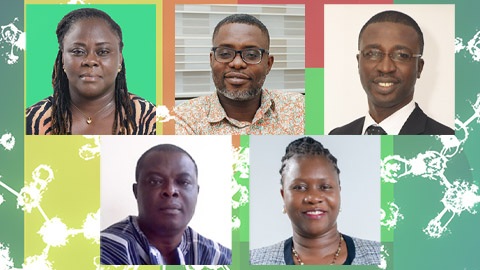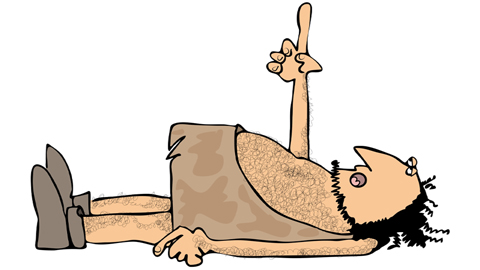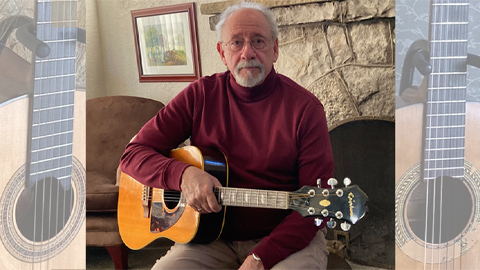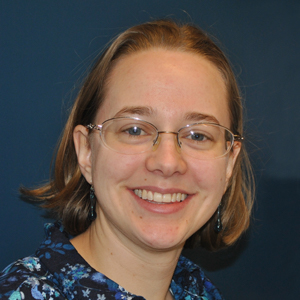A small STEP toward peace
“Science knows no borders,” Allen Taylor at Tufts University says with earnest simplicity. A professor of ophthalmology, Taylor is founder of the Scientific Training Encouraging Peace Graduate Training Program, which facilitates advanced scientific training in Israel and adjacent Palestinian territories.
 Taylor
Taylor
The STEP program supports three pairs of graduate students who work closely together for at least a year at universities in the region. Each pair has one Palestinian and one Israeli. “A byproduct of this intensive and difficult training period – typical of the graduate student experience worldwide – is that the STEP fellows advance their careers while also seeing that they can trust one another,” Taylor says.
Taylor explains: “I decided to do my little part to reintroduce Israelis and Palestinians to each other in cooperative, intense working relationships that build trust and advancement for the participants.”
The participants
Ahmad Abu Al-Halaweh, a Palestinian graduate student at Ben-Gurion University of the Negev, said he joined the program primarily to get his Ph.D. without having to leave the area and his family. He applied to a public health Ph.D. program at Hebrew University in Jerusalem in 2008, but his application was refused. He says it is extremely difficult for Palestinians to secure admission to Israeli universities, and he tried to contact Hebrew University several times prior to submitting his application.
When Al-Halaweh saw an announcement for the STEP program in a local paper, he says, knew that it would be a unique opportunity to continue his higher education. A side benefit was the opportunity to meet other STEP fellows, including his partner, who he says is invaluable for her help with his Hebrew lessons.
Katya Zelentsova, an Israeli Ph.D. student at Hebrew University of Jerusalem, says she joined the program for primarily ideological reasons. STEP allowed her to interact with Palestinian students daily and better understand them.
“We exchange ideas,” she says. “We eat together. We hang around in our free time.” She adds that she hopes that the friendships formed now can last forever.
Historical context
The STEP program is not the first program to attempt to use science for diplomacy. There is a storied history of Cold War-era scientific collaboration between the U.S. and the U.S.S.R., including the development, production and distribution of the polio and smallpox vaccines. In addition, there are other programs that try to bridge the divide between the peoples in Israel and adjacent Palestinian territories using science as a common ground. The Malta Conferences help scientists from 15 Middle Eastern countries build collaborations and personal relationships. SESAME, which is short for the Synchrotron-light for Experimental Science and Applications in the Middle East, will be the first major intergovernmental scientific facility in the Middle East. It is set to begin operations – including a macromolecular crystallography beamline – later this year. The center’s mission is to support scientific development and foster cultural bridges among its users.
In addition, the U.S. Agency for International Development has a research grant program for collaborations in the Middle East. One of the biggest health-related successes of the Middle East Regional Cooperation program is a physical therapy treatment for West Bank children with cerebral palsy.
What makes the STEP program special among these other programs is its focus on trainees. With the exception of an agreement between the Weizmann Institute of Science and Al-Quds University, the other programs do not support scientists in training. Science training is particularly important, as it serves as the foundation for improving public health capacity in the region of conflict and ameliorating the asymmetry of scientific capabilities and medical capacities, both of which have been proposed as prerequisites for a lasting regional peace.
How the program began
Taylor grew up in a Zionist-oriented family and decided to experience life in Israel as more than a tourist. From 1998 to 1999, he took a sabbatical as a senior Fulbright scholar at Tel Aviv University, where he worked with Yossi Shiloh on DNA damage response. He spent that year working in the lab, hiking and exploring the cultures. “This was one of the deepest experiences of my life and left me loving the people and the region,” he says.
In the years since Taylor’s sabbatical, Israel and the adjacent Palestinian territories have experienced a great deal of turmoil. The Second Intifada – or Palestinian uprising – from September 2000 to February 2005 led to the construction of the Israeli West Bank barrier (also known simply as “the wall”), which severely restricts the travel of Palestinians. The Gaza War throughout 2009 destroyed the Islamic University of Gaza laboratories. From 2012 to just last summer, the area has been plagued by one- to six-week long eruptions of violence.
“Although the wall and travel restrictions help bring safety and stability, it also caused a dangerous estrangement of Israelis and Palestinians,” Taylor says, adding, “the temporary periods of quiet are only a mirage of safety.” To build a lasting peace, he says, the estrangement must be broached: “You don’t need to make peace with your friends or neighbors because there is already trust and cooperation. Generally, you make war with people you don’t know. Now we must reintroduce people so they can be more friendly and less disposed to seeing war as a solution to the estrangement.”
Taylor used his contacts in the area to establish the STEP program based out of Ben-Gurion University of the Negev, Al-Quds University in East Jerusalem (a Palestinian area) and Tufts University, with additional collaborations with Hadassah Medical Center and other universities and medical centers in the region.
The STEP trainees
The program’s six trainees are pursuing advanced training in biomedical graduate programs. A pair of graduate students studies diabetes at Ben-Gurion University of the Negev, approaching the problem from complementary public health angles.
Al-Halaweh is the director of the Diabetes Care Center at Augusta Victoria Hospital in East Jerusalem. For his master’s thesis at Ben-Gurion University, he will be analyzing the impact of a multidisciplinary, comprehensive diabetes treatment model spearheaded at the Diabetes Care Center. This model has spread within the Palestinian Ministry of Health system and the United Nations Relief and Works Agency system. For his Ph.D., Al-Halaweh says, he will study the impact of this model around the Palestinian territories and see if it can be implemented even more broadly. His STEP partner is a master’s nursing student who works on a complementary project. Efrat Tal Kotegaro is studying how to advance psychological support for obese diabetic patients.
Two pairs of students conduct research at the Institute of Dental Sciences at the Hebrew University of Jerusalem. Zelentsova and her STEP partner study cellular differentiation. Zelentsova’s Ph.D. project focuses on the neurogenesis or generation of new neurons, even in adults. She is studying how a natural anticoagulant is involved in neural development with the goal of being able to replace neurons damaged by trauma or neurodegeneration. Her partner, Anas Ala’Aldin Atieh, is studying blood vessel growth and differentiation, focusing on those factors hijacked in cancerous tumor growth. Another pair of STEP trainees at the dental institute is exploring the mechanism of periodontitis in order to improve dental care.
'A point of light'
In addition to the clear benefits that supporting advanced scientific training yields, Taylor hopes the trainees will gain knowledge of each culture’s common humanity. By fostering first-person knowledge of the benefits of cooperativity in respected members of the medical and scientific community, Taylor says, each trainee can serve as “a point of light which radiates out into the community.” Al-Halaweh says that he hopes the STEP partnerships will continue past his Ph.D., helping both communities and institutions in the long run.
The STEP program is poised to double its impact every year, if only it had more funding. Taylor and his wife leverage personal connections and use word of mouth to raise money. A lot of the usual international funding agencies are reluctant to fund the program, as it is new and very intentionally crosses the border between the two states. “This is probably amongst the most important kind of initiative that one could invest in,” Taylor insists, “because it’s … really trying to bring peace on the ground.”
Learn more about the STEP program, or watch the video.
Maggie Kuo contributed to this report when she was an intern at ASBMB Today. Now she is a writer at the American Physiological Society. She earned her Ph.D. in biomedical engineering at Johns Hopkins University.
Enjoy reading ASBMB Today?
Become a member to receive the print edition monthly and the digital edition weekly.
Learn moreGet the latest from ASBMB Today
Enter your email address, and we’ll send you a weekly email with recent articles, interviews and more.
Latest in Opinions
Opinions highlights or most popular articles

Getting to know scientists half a world away
In a program at Wellesley College, students interview and write about researchers at a university in Ghana.

Let’s make ASBMB awardees look more like BMB scientists
Think about nominating someone outside your immediate network.

A paleolithic peer review
You might think review panels have only been around for the last century or so. You would be mistaken.

Early COVID-19 research is riddled with poor methods and low-quality results
The pandemic worsened, but didn’t create, this problem for science.

So, you went to a conference. Now what?
Once you return to normal lab life, how can you make use of everything you learned?

My guitar companion
A scientist takes a musical journey through time and around the world.

